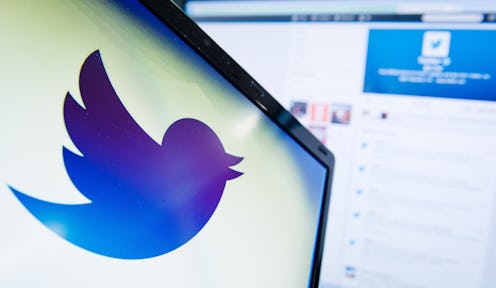Life
Guess How Many Shared Links Are Never Clicked?
Social media is often hailed as a revolution in many things, including the way Americans get their news; however, the real story might not be so grand. It turns out that most links shared on Twitter are never clicked — not even by the people who post them. It's not exactly the most flattering news about our social media habits... and it also kind of makes me wonder how many of you might be sharing this article without reading it.
According to a study done by researchers at Microsoft and Columbia University, it seems that 59 percent of all links shared on Twitter are never clicked, making them what researchers call "silent." This doesn't necessarily mean people haven't read the links they post if they accessed them in a way that doesn't show up in the meta data the researchers have access to — but it still doesn't seem to fit with the idea of a curious and engaged social media audience eagerly soaking up the news. Weird, no?
So what do we click on online? Well, the study finds that, of the links people do click on, a significant number are "blockbuster links" — aka, links that are shared extremely widely. Established news sites like BBC or Huffington Post account for most of these "blockbuster links." By contrast, people are extremely unlikely to click on "niche" links from less recognizable and less widely shared sites. But even though they're much less popular, "niche" links still make up a significant number of links shared on Twitter.
"An interesting paradox," the researchers write, "is that there seems to be vastly more niche content that users are willing to mention in Twitter than the content that they are actually willing to click on." So basically, we really want to tell other people about the off-beat things we've read or watched online, but we don't want to check it out when other people share the same.
Of course, this study doesn't necessarily apply to all or even most social media sites; every site operates very differently, and here, the focus was only on Twitter. It could be that users on Facebook or Pinterest are much more likely to click on links that people post, or that Twitter is simply a poor medium to share links — unless, I guess, you're an account with a massive following or tweeting about a trending topic: Researchers found that links that are seen by 100,000 people or more are the ones that most often generate considerable traffic on Twitter. For most, people, it seems, sharing links isn't going to do much.
So is Twitter just a bad place to share links? Given the way Twitter often seems the best place to keep on top of to-the-minute news, it seems strange to think of it that way. However, there are certain things about Twitter that might result in a failure to generate clicks — mainly the fact that tweets are, by their nature, so fleeting. A link might not really be around long enough for people who'd be interested to see it before being buried under a new wave of tweets.
However, the data in this study could also be somewhat skewed by the fact that there are so many accounts on Twitter that are spam accounts or bots sharing hundreds of links that most people probably aren't interested in — as well as millions of accounts that just don't have more than a handful of followers. So it might not be that Twitter is a terrible place for links, just that a disproportionate number of links are shared by accounts most people aren't interested in, regardless of what they tweet.
Regardless, it seems that social media might not be quite the revolution we think it is when it comes to how we get our news — despite recent studies to the contrary. Food for thought, no?
Image: Giphy
